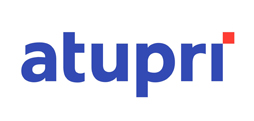Health insurance can be a confusing topic for newly-arrived expats. In this guide, moneyland.ch answers many important questions about health insurance in Switzerland.
What kinds of health insurance are available in Switzerland?
Swiss health insurance falls into two categories:
- Compulsory health insurance
With a few exceptions (more on this below), everyone living in Switzerland has to subscribe to basic, mandatory Swiss health insurance. As an expat, you are generally obligated to get Swiss mandatory health insurance within three months of taking up residence in Switzerland.
- Voluntary health insurance
Although mandatory Swiss health insurance provides good basic cover, it does not cover all possible expenses and treatments. For that reason, many health insurance providers offer voluntary, supplemental outpatient insurance, hospital insurance, and dental insurance.
What does mandatory Swiss health insurance cover?
Most essential medical care in Switzerland is covered without any limits. Coverage for some expenses, such as ambulance transportation and certain medicines, is capped or subject to higher deductibles. You can find a detailed overview in the guide to mandatory health insurance benefits.
Although the insurance cover and deductible models are dictated by law and are always identical, each health insurance provider has its own insurance premiums. You are free to change your insurance policy at the end of each calendar year. The interactive mandatory health insurance comparison on moneyland.ch makes it easy to find the cheapest mandatory health insurance for the current year.
How much does mandatory Swiss health insurance cost?
Premiums vary between insurance providers. Other factors that affect the cost of insurance are:
- Your age group.
- Where in Switzerland you live.
- Which insurance deductible you choose.
- Which insurance model you choose (with or without managed care).
You can easily find the cheapest offers based on all these factors using the interactive mandatory health insurance comparison on moneyland.ch.
Do I have to apply for health insurance myself?
Yes. You have a three-month grace period, starting from the time you register as a resident in Switzerland, during which you have to subscribe to a mandatory health insurance offer. The interactive health insurance comparison lets you quickly compare all offers based on your age, where in Switzerland you live, and your preferred deductible and insurance model.
Your insurance policy covers you retroactively, back to the date on which you became an official resident. You must also pay premiums in arrears, starting from the month on which you became a resident. Any medical expenses that you incur during the grace period are covered retroactively.
Important: If you fail to meet the three-month deadline, you will automatically be assigned a health insurance policy by Swiss health authorities. The offer they choose may not be the cheapest available.
Does mandatory Swiss health insurance cover preexisting health conditions?
Yes. All compulsory Swiss health insurance coverages apply to all insured residents. Insurance providers must accept your application regardless of your age or health, and they cannot exclude preexisting conditions. From the time you are insured, you can claim all of the benefits of Swiss mandatory health insurance.
Do older people pay higher premiums?
There are just three age groups for mandatory health insurance premiums: Child (age 0-18), young adult (age 19-25), and adult (age 26 and older). After the age of 26, your age no longer makes a difference with regards to the premiums you have to pay.
Can I get an exemption from compulsory Swiss health insurance?
Swiss mandatory health insurance is relatively expensive. If you already have private, international expat health insurance, or if you do not want health insurance, you may be asking whether you can get an exemption.
In fact, there are a few cases in which you can apply for an exemption from compulsory health insurance. This is possible in the following situations:
- You are sent to Switzerland by your employer. If you are a citizen of the United Kingdom or a country in EFTA or the EU, and you are sent to Switzerland by a UK, EFTA, or EU employer, then you can remain exempt for up to 24 months after moving to Switzerland. As a citizen of Croatia, India, Japan, or North Macedonia temporarily sent to Switzerland by an employer in your home country, you can obtain an exemption from Swiss mandatory health insurance. For all other countries, you may be able to get an exemption if your country’s laws require you to remain insured there. This is only possible if the coverage is equivalent to Swiss mandatory health insurance, and getting insured in Switzerland would result in you having to pay for the same insurance twice.
- You work in an EU or EFTA country or the UK. If you live in Switzerland but work in the United Kingdom or a country that is part of the European Union (EU) or European Free Trade Association (EFTA), then you need to get insured in the country you work in. Note: If you work remotely, with the bulk of your work actually being done in Switzerland, then you are subject to Swiss mandatory health insurance.
- You receive a pension from an EU or EFTA country or the UK. If you live in Switzerland but receive a pension from an EU or EFTA country, and you do not have a Swiss income (a Swiss salary or pension, for example), you are subject to the public health insurance of the country from which you receive your pension.
- You work for an embassy or consulate, or an exempted international organization. If you live in Switzerland but are employed by an embassy or consulate, or an exempted international organization, then you can receive an exemption from compulsory Swiss health insurance. The same holds true for non-employed dependents living with you.
- You work in Switzerland but live in a neighboring country. As a cross-border worker living in Austria, France, Germany, or Italy, you can choose between compulsory Swiss health insurance or equivalent health insurance from an insurance provider in your country of residence. You can find detailed information in the financial guide for cross-border workers.
- You are a foreign student. As a foreign student living in Switzerland for the sole purpose of studying, without earning income in Switzerland, you can get an exemption if your existing foreign health insurance provides adequate coverage. There are also Swiss insurance providers that offer special insurance for foreign students that is generally accepted as equivalent to mandatory insurance. You can find detailed information in the guide to health insurance for foreign students.
If you are requesting an exemption on account of , you must obtain an A1 certificate from the public healthcare scheme in your home country and submit it to the health authority of the canton that you live or work in.
What can be covered with voluntary Swiss health insurance?
While Swiss mandatory health insurance gives you good basic cover for essential medical care, certain coverages may not be adequate for your needs. To close these gaps, many Swiss insurance providers offer supplemental outpatient insurance, hospital insurance, and dental insurance. Some offers bundle additional benefits for health and wellbeing.
Unlike mandatory health insurance, the benefits of voluntary health insurance are different for each insurance offer. moneyland.ch offers overviews of supplemental health insurance benefits for certain expenses in these guides:
Voluntary hospital insurance extends the basic coverage for general wards that you get from mandatory health insurance. You can learn more about supplemental hospital insurance in the guides to general ward insurance, semi-private ward insurance, private ward insurance, and flex insurance.
What does voluntary Swiss health insurance cost?
You can easily compare voluntary health insurance offers based on their cost and coverages using the supplemental outpatient insurance comparison and the supplemental hospital insurance comparison.
Important: Because benefits vary broadly between offers, it is important to look at what is covered, and not just the insurance premiums.
More on this topic:
Compare Swiss mandatory health insurance offers now
Compare supplemental outpatient insurance offers now
Compare supplemental hospital insurance offers now
How to invest money in Switzerland
The expat guide to Swiss mobile plans


 Deal of the Day
Deal of the Day 





